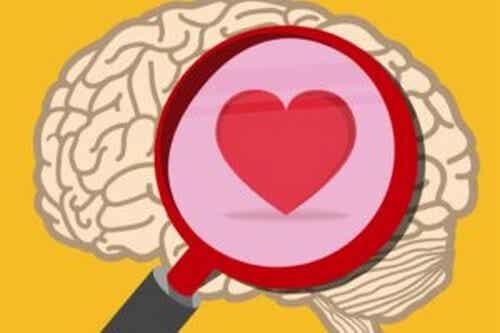The impact of emotions on the body is not insignificant. In this article we will see how stress affects the body, how it manifests itself and how we can fight it so that it does not translate into muscle tension.

Last update: February 19, 2022
Does neck pain give you no respite, even while sitting at your desk and maintaining correct posture? Do you feel sore jaw every time a sudden workload comes along? You probably suffer from stress-induced muscle tension: the physical expression of an increasingly widespread disorder.
The Academic Stress article well defines the psychological symptoms related to stress, describing them as answers to continuous daily requests; responses that cause nervousness, loss of control and physical exhaustion.
The commitments are continuous and stress seeks a way to manifest itself, even on a physical level. Here, then, that back pain, jaw pain and headache appear.
a serious problem
Since a large part of the population suffers from stress-induced muscle tension, this condition has been normalized. This means that many people, convinced that they cannot intervene, accept the situation passively. This is precisely not the negative side of acceptance: resignation.
Feeling tension in the shoulders warns us that we are carrying an excessive work or study load. We feel this part of the body stiff and often suffer from muscle contractures that can extend up to the neck.
Do you feel the need to move your shoulders or to massage them? A slight pain may occur at first, but if we do not intervene to reduce stress, over time the discomfort can become chronic.
Furthermore, when the stress is very strong, it is common to notice that the leg muscles are excessively contracted. It might seem like a minor problem, but night cramps appear instead. Perhaps you have identified with this description.
"Stress should be a powerful driving force, not a hindrance."
– Bill Philips –
Stress-induced muscle tension increases the risk of injury
It might sound over the top, but it's not. Muscle tension can become a risk factor for injury if ignored for too long. Athletes know this well, which is why they stretch after an intense workout. The goal is to relax the muscles rather than gain flexibility.
When we suffer from stress-induced muscle tension, the strain doesn't come from exercise, so it doesn't occur to us to stretch the muscles. But the muscles are tense, therefore exposed to all kinds of trauma.
Prevent and reduce stress
If we don't take steps to reduce or prevent muscle tension, it will intensify. In this sense, going to the physiotherapist is, at times, like putting a plaster on the wound: it is useless if we do not act directly on the underlying factor.
How can we reduce daily stress? With a series of techniques that, apparently simple, require our conscious participation. Once natural laziness is overcome, they offer important changes that allow you to feel better.
- Relaxation techniques: meditation, mindfulness, yoga and the like. We can count on a large number of techniques to relax and free ourselves from the stress accumulated on the body. Active breaks at work are the ideal time to take them.
- Practice assertiveness. If you can say "no", do it. This option presents itself to us many times, but our need for approval from others prevents us from using this resource. Do not put your health at risk for this reason.
- Cognitive restructuring. It is a great tool that can be acquired with the help of the psychologist. It consists of distancing oneself from a very stressful situation in order to identify its source and be able to manage it better.
Finally, one very important aspect must be remembered: when you are no longer in the stressful context, focus on the present moment.
On the nature that surrounds you while walking, on the well-being you feel when you train your muscles in the gym, on the joy of friends with whom you share projects. Last but not least, let yourself be guided by a specialist.


























